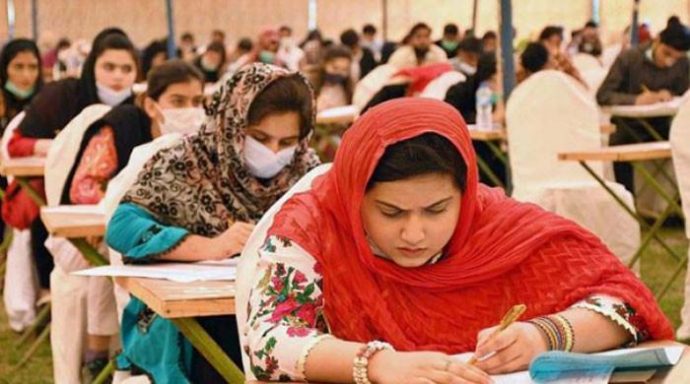
IBCC Uses a New Formula to Replace the Marking System
For matric and intermediate exams, the Inter-Boards Coordination Commission (IBCC) has substituted a grading formula for the previous marking method. This new approach will be used initially for exams administered by the boards of Sindh, Balochistan, Azad Kashmir, and Gilgit-Baltistan, as well as the Federal Board of Intermediate and Secondary Education (FBISE).
The following three years will see the gradual implementation of the grading system.
The new grading scheme for the Secondary School Certificate (SSC) and Higher Secondary School Certificate (HSSC) examinations, according to Education Secretary Mohyiuddin Wani, attempts to further accuracy, fairness, and transparency in assessing students’ academic achievement. The system’s goals are to combat grade inflation, lessen the fierce rivalry for top grades, and fairly represent the learning and accomplishment of students.
Additionally, the passing score was increased from 33% to 40%.
According to an IBCC press release, the grading system will reduce the rivalry between children, parents, and schools to get the highest possible score. The grading system would be introduced beginning with the yearly board exams in 2025, according to announcements made by the FBISE, the Sindh government, and the Balochistan Board of Intermediate and Secondary Education (BISE).
According to Dr. Ghulam Ali Mallah, Executive Director of the IBCC, the 10-point grading system will take the place of the conventional approach of presenting results using raw marks and grades. Students who score 96–100 will obtain an A++, 91–95 an A+, 86–90 an A, 81–85 a B++, 76–80 a B+, 71–75 a B, 61–70 a C, 51–60 a D, and 40–50 an E under the new system. A U will be given to those who score less than 40, and they will be deemed to have failed.
Dr. Mallah added that the new grading scheme would be implemented gradually, with results for the ninth and eleventh grades being released in 2025. Grades and marks will be applied to 10th and 12th grades the following year, with complete implementation by 2027.
The federal government (FBISE), Sindh (which has nine boards), Balochistan, Azad Kashmir, and Gilgit-Baltistan have all consented to implement the new system, according to the IBCC, which is in charge of 29 education boards across the nation. With eight boards apiece, Punjab and Khyber Pakhtunkhwa have not yet decided.
“We are optimistic that the governments of Punjab and Khyber Pakhtunkhwa will implement the new grading system to guarantee consistency throughout all boards, as per our request,” stated Dr. Ghulam Ali Mallah.

Content writer, educationist, teacher, researcher, social media manager, and a SEO manager from lahore. She has been working as a freelance academic and non-academic writer for more than 20 years now. She has a passion to learn new things and has a knack for writing and she combines both things to produce write ups she pours her heart out in.

